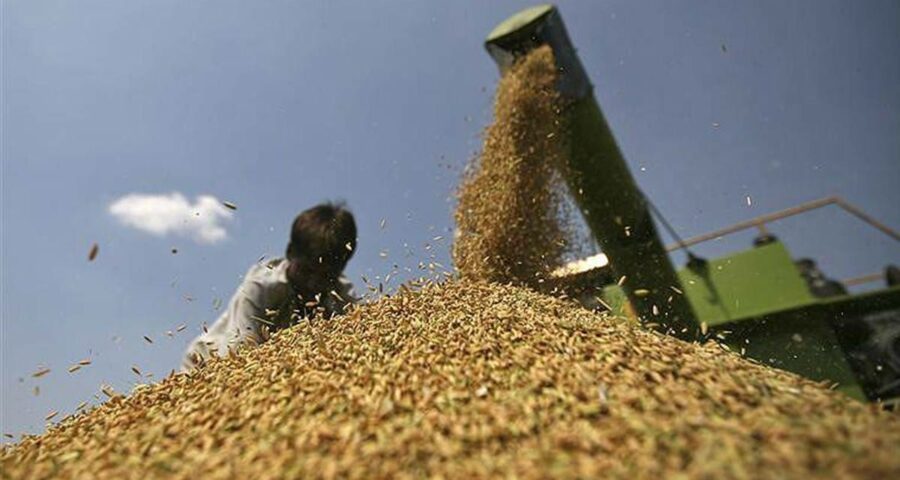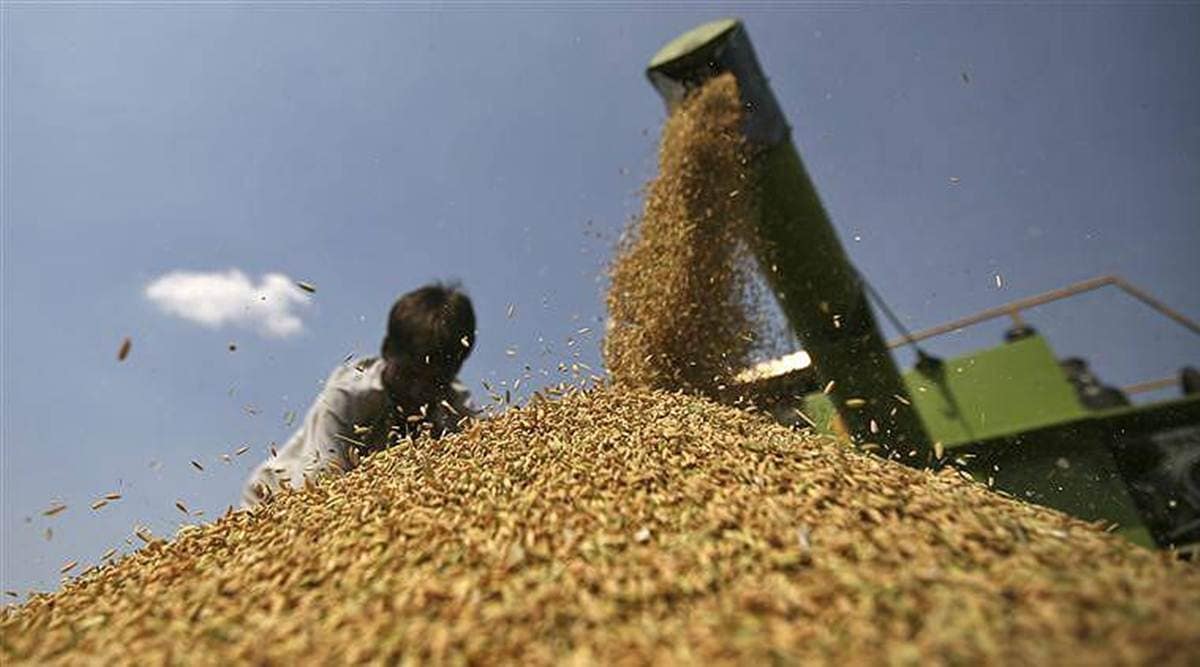These wholesale rates at mandis in major producing centres are well below the Centre’s minimum support price (MSP) of Rs 5,100 per quintal.
The Centre may have exempted imported pulses from stock limits imposed with a view to contain rising food inflation, but the adverse impact of it is being borne mainly by farmers and domestic traders, who continue to face stocking restrictions.
Take chana (chickpea). The average modal price of this rabi pulse is currently ruling at Rs 4,300 per quintal in Akola (Maharashtra), Rs 4,500 in Rajkot (Gujarat), Rs 4,600 in Bikaner (Rajasthan), Rs 4,700 in Ashoknagar (Madhya Pradesh) and Rs 4,800 in Gadag (Karnataka).
These wholesale rates at mandis in major producing centres are well below the Centre’s minimum support price (MSP) of Rs 5,100 per quintal.
What is interesting is that prices in the same mandis averaged higher during April-June: Rs 5,162 per quintal (Bikaner), Rs 5,156 (Akola), Rs 4,944 (Ashoknagar), Rs 4,916 (Gadag) and Rs 4,674 (Rajkot). Given that April-June is the period for harvesting and peak arrivals of chana, realisations close to or even higher than the MSP would have enabled farmers to make decent money this time.
But according to trade estimates, farmers sold only 60-70 per cent of their crop in April-June. They held back the remaining 30-40 per cent in anticipation of prices going up further in the off-season.
“Even in Gujarat, where chana production almost trebled from 3.5 lakh tonnes (lt) to over 10 lt, farmers realised Rs 4,600-4,700 per quintal this April-June, compared to Rs 4,000-4,100 last year. Many of them didn’t sell their entire produce, as they thought prices would rally further,” a trade source said.
In fact, the National Agricultural Cooperative Marketing Federation of India, which is the government’s procurement agency for pulses, could buy only 6.5 lt of chana during April-June 2021, as against 21.15 lt in the same period last year.
All the calculations of those who chose not to sell during the season have, however, come to naught following the Centre’s July 2 decision to clamp stockholding limits on domestic wholesalers, retailers and millers as well as importers of pulses. On July 19, importers were totally exempted from the restrictions. At the same time, domestic retailers have been permitted not to stock more than 5 tonnes, with these being fixed at 500 tonnes for wholesalers and at last 6 months’ production or 50 per cent of annual installed capacity (whichever is higher) for millers.
“You can now import and stock any quantity of pulses. But you cannot do the same with domestically sourced pulses, which will only harm farmers and bring down their realisations. They would then, be disinclined to sow pulses and that will eventually hurt consumers,” the source said.
Milled chana dal is, at present, retailing at Rs 73.5 per kg, compared to Rs 60 a year ago. The corresponding all-India modal retail prices are, similarly, at Rs 100/kg (Rs 90 last year at this time) for tur/arhar or pigeon-pea, Rs 110 (Rs 100) for urad or black gram, Rs 85 (Rs 80) for masur or green gram and Rs 100 (Rs 120 last year) for moong or green gram dals.
In none of pulses have prices increased by 50 per cent or more to merit imposition of stockholding limits, as per the Centre’s Essential Commodities (Amendment) Act that was among its three farm laws enacted in September last year.
Source: Read Full Article


